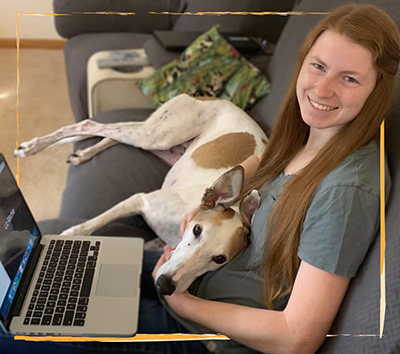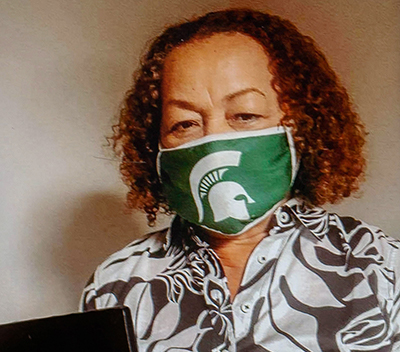“This generation of students is digital-native,” she says. “Most of our students knew how to handle it. I attend events with them via Zoom and they are adapting to the new normal. While this is not a good situation, students have been creative about how they interact within their clubs, faculty, and with their fellow students from other veterinary colleges. MSU CVM students are resilient humans. Further, I am confident students completing the Doctor of Veterinary Medicine and Veterinary Nursing Programs at MSU will bring additional and important tools to their future employers because they are highly adaptable. They are high-level problem solvers, which employers seek in these resilient humans. The modality of course delivery was new, but I knew they were very versatile, and they could do it.”
As the modified semester wore on and kinks in the new system were worked out, the objective for all faculty and staff decisions was clear: preserve an excellent learning experience, no matter what.
“There were some innovative things done with the students, or that courses managed to do, regardless of being online,” says Norby. “Some of them still had group presentations, just in Zoom rooms. On one course, we mailed out lab materials—a syringe, for instance—so a student could practice syringe handling.”
For clinical clerkships, though, meeting the needs of students, patients, while following health and safety protocols has been challenging. Clerkships have transitioned to a partial online, partial in-person format.
“The pandemic has inevitably impacted my clinical schedule,” says Liz Ritchie, DVM Class of 2021. “However, I’m grateful that at MSU, we start clinics a semester early as compared to some other schools. Some of my colleagues at other universities have yet to step onto the clinic floor, whereas I had some rotations pre-pandemic.”
Where some opportunities had to be modified, new ones were introduced to keep the learning going. Dr. Birgit Puschner, dean of the College, taught a course on small animal pharmacology. Students could take basic and advanced courses for Life Support Certification for dogs and cats, thanks to a partnership between The Reassessment Campaign on Veterinary Resuscitation, the Veterinary Emergency and Critical Care Society, the American College of Veterinary Emergency Critical Care, and Cornell University. DVM students were eligible for online courses offered by the University of Illinois College of Veterinary Medicine, including small animal dentistry and imaging anatomy.
The DVM Class of 2020 graduated under unusual circumstances, but was able to meet its requirements and move on, out into the real world as veterinarians. The Veterinary Nursing Class of 2020 graduated fully eligible to sit for the Veterinary Technology National Examination.






